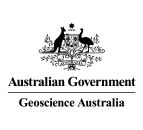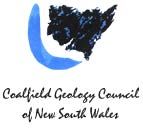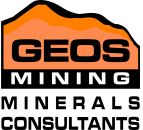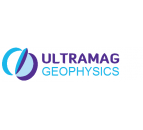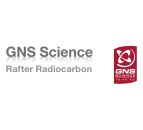Session Details- Energy
Increases in the global demand for energy has been driving advances in the efficiency of coal and conventional hydrocarbon extraction, while also urging the rapid growth of interest in unconventional hydrocarbons. Future energy supplies are likely to include all fossil fuels, nuclear sources, and significant increases in the use of renewable energy and cleaner alternatives. Building on the public debate to be stimulated by the “Energy 2050” public forum, the Energy theme will encompass Earth Science perspectives on energy sources, exploration and extraction methods, and environmental consequences and solutions.
Fossil Fuels
I. Petroleum sessions
EG01 Petroleum prospectivity, exploration and modelling of proven and frontier basins
(EG01: Petroleum - proven and frontier basins)
This session could include presentations on:
• petroleum prospectivity of proven and frontier basins;
• petroleum geochemistry, palaeontology, basin modelling and source rock models;
• facies mapping, depositional environments and stratigraphy;
• advances in the application of seismic, gravity, magnetic and electromagnetic data to basin studies and petroleum exploration;
• exploration of frontier basins including extending exploration into new water and drilling depths.
I. Petroleum sessions
EG01 Petroleum prospectivity, exploration and modelling of proven and frontier basins
(EG01: Petroleum - proven and frontier basins)
This session could include presentations on:
• petroleum prospectivity of proven and frontier basins;
• petroleum geochemistry, palaeontology, basin modelling and source rock models;
• facies mapping, depositional environments and stratigraphy;
• advances in the application of seismic, gravity, magnetic and electromagnetic data to basin studies and petroleum exploration;
• exploration of frontier basins including extending exploration into new water and drilling depths.
EG02 Petroleum reservoir characterisation and modelling – towards booking accurate reserves
(EG02: Petroleum reservoir characterisation and modelling)
Presentations included in this session could focus on the use of petrophysics for formation evaluation, reservoir characterisation and modelling, reservoir management, reservoir fracturing, and environmental concerns associated with expanding reserves.
II. Unconventional hydrocarbon sessions
EG03 Coal seam gas – insights into a rapidly expanding resource and industry
(EG03: Coal seam gas)
EG04 Shale gas and tight gas – the next frontiers in unconventional hydrocarbons
(EG04: Shale gas and tight gas)
Sessions on unconventional hydrocarbons could address studies on
• depositional environments, stratigraphy, lithology and geomicrobiology;
• resource and reservoir property characterisation;
• advances in petrophysical techniques for formation evaluation and reservoir modelling;
• sedimentary basin modelling and regional subsidence;
• exploration, hydraulic fracturing and production (stimulation, multiphase flow, geomechanics);
• water production and management, and environmental concerns.
III. Coal sessions
EG06 Coal – advances in the multiple facets of coal geosciences
(EG06: Coal – advances in coal geosciences)
Fundamental studies to improve insights into coal geoscience could include topics such as coal quality and petrological studies, coal seam architecture and stratigraphic modelling, depositional environments, stratigraphy and lithology, sedimentary basin analysis and mineral matter in coal.
EG07 Coal – an old resource in a new age
With multiple sources now form part of the energy mix, studies related to coal as an energy resource could include:
• exploration and geotechnical assessment to expand reserves;
• advances coal mining methods for increased production;
• new techniques applied in geophysical and geological predictive models for exploration and mining;
• coal characterisation for enhanced efficiencies in combustion, gasification and coke production;
• water issues in coal mining, as well as environmental concerns and rehabilitation.
IV. Greenhouse gas mitigation sessions
EG08 Enhancing recovery and understanding fugitive emissions
This session could include improved techniques in horizontal drilling for enhanced oil recovery, reservoir fracturing and chemical methods, water/CO2 injection and re-injection, enhanced coal seam methane (CO2 injection or microbial enhancement) and developments in understanding fugitive emissions (modelling, accounting, and management strategies).
EG09 CO2 geological storage – Locked in for the long-term
Proposed topics for the geological storage theme include:
• depleted oil and gas reservoirs;
• unused saline water-saturated reservoirs;
• unmineable coal seams;
• basalts and ultramafics;
• CO2 enhanced recovery;
• site selection, reservoir characterization and storage assessment;
• injectivity, containment and security;
• measurement, monitoring and verification systems;
• uncertainty, risk and resource conflicts.
EG10 Terrestrial sequestration of CO2 – advantages of the biosphere
(EG10: Terrestrial sequestration of CO2)
V. Renewable energy sessions
EG11 Clean energy – towards a cleaner tomorrow
Advances in the science and technology for clean energy options such as wind, solar, geothermal, hydro and wave, each with advantages and limitations, including geological uncertainties and resource supply can be addressed in this session.
VI. Nuclear energy sessions
EG12 Nuclear energy – resources and challenges
(EG12: Nuclear energy)
This session will cover studies on the characterisation of resource deposits, site selection for nuclear facilities, characterisation of storage repositories for nuclear waste materials, environmental remediation and monitoring systems, uncertainties and challenges surrounding resource supply, geologic risk, and waste management.





